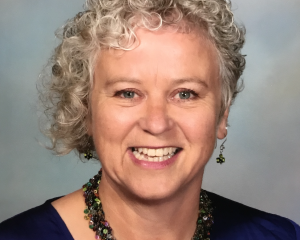
The Otago Daily Times has learned 11 health regions nationally are included in the plan, which estimates thousands of surgeries will need to be outsourced, ranging from general surgery to neurosurgery.
Health New Zealand Te Whatu Ora (HNZ) said the regions "do not have the capacity to provide all the surgical services needed to meet the current demand for their population" when describing the situation in its request for proposals.
Under the plan it was estimated an annual total of 1113 procedures would be outsourced in Southern.
Orthopaedics was the biggest outsourcing category, with 357 estimated procedures, followed by urology with 248 procedures and general surgery with 198 procedures.
Association of Salaried Medical Specialists (ASMS) executive director Sarah Dalton questioned the approach, which she worried would detract from the public health system.
Very few specialists worked exclusively in the private sector, she said.
A recent ASMS survey found 63% worked only in the public sector, while 37% worked in both the public and private sector.
"A lot of this stuff is going to be pulling people away from availability to work in public.
"Our members who work in public hospitals want to see patients in public in a timely fashion and deliver them the care they need, and they are not being supported to do that by their employer."
A private health system was not a bad thing when there was also a public health system with decent staffing levels, she said.
However, some services were basically running on empty, and the ASMS was seeing "real distress" from its specialists.
The hiring process was indirect and even long-standing vacancies were not being filled.
She questioned why specialists working for the public system could not be periodically dispatched to other parts of the country to meet demand.
The health system should not be run like a business, and there was "too much hand-wringing" and not enough being done.
The ASMS has been vocal about the ongoing shortage of specialists — last September the union held its first nationwide strike, pushing for better pay to attract and keep staff.
A Dunedin specialist told the ODT at the time the government was "gambling with people’s lives" by refusing to do this, as specialists would not want to stay in New Zealand when pay lagged behind inflation and overseas rates.
Orthopaedics has been a long-standing issue for Dunedin Hospital — in April 2022 the service’s clinical director said it had "never really been close" to meeting the Ministry of Health target of providing planned care within four months, and the situation was getting worse.
Urology has also been an ongoing issue, and earlier this year HNZ Southern told the ODT the hospital had not had a fully staffed team of urologists since March 2022.
HNZ said in its request for proposals the outsourcing was needed for an initial two-year period, with a right of renewal for one year.
A breakdown of expected annual outsourcing showed Waikato to be the region most in need.
The region was predicted to pass 1827 surgeries to the private sector, including 936 orthopaedic procedures.
All five of the South Island’s health regions were part of the plan.
Canterbury was expected to outsource 1670 procedures, the highest number in the South Island.
The West Coast was expected to outsource the fewest, at 53 procedures.
HNZ did not answer questioning on what increase in outsourcing the plan represented.
The organisation also did not say whether the lack of capacity was caused by a lack of specialists, why more specialists were not sent between regions and if the approach was cost-effective compared with increasing spending on specialists in the public sector.
HNZ service strategy, planning and purchasing director Rachel Haggerty said the procurement of any surgical services from the private sector was part of nationwide clinical service planning aimed at distributing care in community settings.
The organisation valued the investment made by the private sector in technology, workforce and facilities.
"With our nationwide overview we can also work interregionally to save on costs and build a system that is robust for the future, working nationally to meet the needs locally."
At a glance
Expected annual outsourcing for Health New Zealand Southern.—
ORL and ENT* 52
General surgery 198
Plastics** 155
Gynaecology 78
Orthopaedics 357
Urology 248
Neurosurgery 25
*Otorhinolaryngology and ear, nose and throat
**(incl. non-cosmetic)











